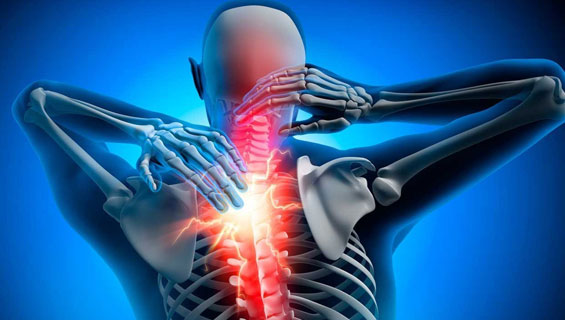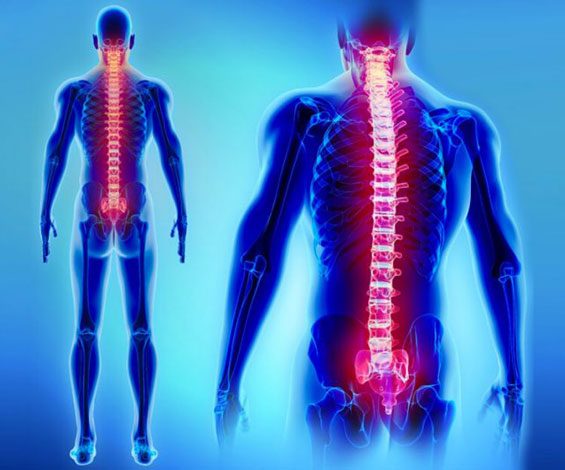A spinal cord injury is a damage to the spinal cord that results in losing function, such as mobility and/or feeling. It can be caused by blunt force trauma or when the nerves are lacerated. The severity of the injury depends on the accident and the significances caused upon the spinal cord or canal. For example, the spinal cord need not be severed for a total loss of function to occur; it merely depends upon the forces of impact involved and the damage suffered.

The spinal cord is the major bundle of nerves that carries nerve impulses to and from the brain to the rest of the body. Spinal cord injury differs from back and neck injuries, such as ruptured disks or pinched nerves in that the anatomy of the spinal column becomes dislodged or fractured resulting in injuries that may not result in paralysis after the bones are stabilized. Spinal cord trauma is more than a single event. The initial blunt force damages or kills spinal nerve cells. In the days following a cascade of secondary events, including loss of oxygen and the release of toxic chemicals at the site of injury, further impairing the cord.
An injury to the spinal cord affects the brain’s ability to communicate with specific areas of the body and organs. When there is a complete spinal cord injury, there is no sensation or voluntary movement abilities below the level of the injury bilaterally. Someone with a complete injury in the lumbar region would be paralyzed below the waist. Conversely, an incomplete injury means there is some function below the level of injury whether it be one-sided or some feeling and sensation. The level of the injury and the extent of the injury often determines whether some is a complete or incomplete paraplegic or quadriplegic.

Besides the physical changes, spinal cord injury victims can also suffer dysfunction of the bowel and bladder. Depending upon the level of the injury they could also be forced to rely upon medical intervention to necessitate breathing, regulate blood pressure, and control body temperature.
Recovery of function depends upon the severity of the initial injury. Unfortunately, those who sustain a complete spinal cord injury are unlikely to regain function below the level of injury. However, if there is an improvement, it usually evidences itself within the first few days after the accident as initial swelling decreases.
Incomplete injuries usually show improvement over time, but this varies with the injury suffered. Once stabilized, and appropriate surgical intervention has been contemplated or completed, intensive rehabilitation can be pursued often including physical therapy, occupational therapy, and counseling for emotional support.

Even with aggressive therapy and treatment, the prognosis normally does not return the victim to the pre-accident state. Spinal cord injury survivors are then left with significant costs and expenses to manage their diminished quality of life with essential life care needs and supportive equipment. As the people living with these injuries age, the costs associated also go up.
The aftermath of a tragic accident that causes spinal cord injuries and related physical and mental despair is devastating. Working with a spinal injury lawyer who can offer the care and attention necessary to make a difference should be part of the team to help on the recovery journey. Call us to see what we can do for you or your loved one.
